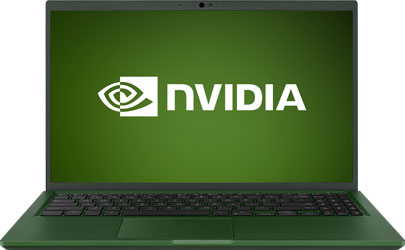Report an Error
NVIDIA Quadro T2000 Max-Q
- Graphics Processor
- TU117
- Cores
- 1024
- TMUs
- 64
- ROPs
- 32
- Memory Size
- 4 GB
- Memory Type
- GDDR5
- Bus Width
- 128 bit
Recommended Gaming Resolutions:
- 1920x1080
- 2560x1440
- 3840x2160
The Quadro T2000 Max-Q is a professional mobile graphics chip by NVIDIA, launched on May 27th, 2019. Built on the 12 nm process, and based on the TU117 graphics processor, the chip supports DirectX 12. The TU117 graphics processor is an average sized chip with a die area of 200 mm² and 4,700 million transistors. It features 1024 shading units, 64 texture mapping units, and 32 ROPs. NVIDIA has paired 4 GB GDDR5 memory with the Quadro T2000 Max-Q, which are connected using a 128-bit memory interface. The GPU is operating at a frequency of 1035 MHz, which can be boosted up to 1395 MHz, memory is running at 1250 MHz (5 Gbps effective).
Its power draw is rated at 40 W maximum. This device has no display connectivity, as it is not designed to have monitors connected to it. Rather it is intended for use in laptop/notebooks and will use the output of the host mobile device. Quadro T2000 Max-Q is connected to the rest of the system using a PCI-Express 3.0 x16 interface.
Its power draw is rated at 40 W maximum. This device has no display connectivity, as it is not designed to have monitors connected to it. Rather it is intended for use in laptop/notebooks and will use the output of the host mobile device. Quadro T2000 Max-Q is connected to the rest of the system using a PCI-Express 3.0 x16 interface.
Graphics Processor
Mobile Graphics
- Release Date
- May 27th, 2019
- Generation
-
Quadro Turing-M
(Tx000)
- Predecessor
- Quadro Pascal-M
- Successor
- Quadro Ampere-M
- Production
- Active
- Bus Interface
- PCIe 3.0 x16
Relative Performance
Based on TPU review data: "Performance Summary" at 1920x1080, 4K for 2080 Ti and faster.
Performance estimated based on architecture, shader count and clocks.
Clock Speeds
- Base Clock
- 1035 MHz
- Boost Clock
- 1395 MHz
- Memory Clock
-
1250 MHz
5 Gbps effective
Memory
- Memory Size
- 4 GB
- Memory Type
- GDDR5
- Memory Bus
- 128 bit
- Bandwidth
- 80.00 GB/s
Render Config
- Shading Units
- 1024
- TMUs
- 64
- ROPs
- 32
- SM Count
- 16
- L1 Cache
- 64 KB (per SM)
- L2 Cache
- 1024 KB
Theoretical Performance
- Pixel Rate
- 44.64 GPixel/s
- Texture Rate
- 89.28 GTexel/s
- FP16 (half)
- 5.714 TFLOPS (2:1)
- FP32 (float)
- 2.857 TFLOPS
- FP64 (double)
- 89.28 GFLOPS (1:32)
Board Design
- Slot Width
- IGP
- TDP
- 40 W
- Outputs
- Portable Device Dependent
- Power Connectors
- None
- Board Number
- E4904 SKU 10
Graphics Features
- DirectX
- 12 (12_1)
- OpenGL
- 4.6
- OpenCL
- 3.0
- Vulkan
- 1.3
- CUDA
- 7.5
- Shader Model
- 6.8
TU117 GPU Notes
| NVENC: 5th Gen NVDEC: 4th Gen PureVideo HD: VP10 VDPAU: Feature Set J Latest Drivers: Windows 7 / 8 / 8.1 (x64): GeForce Release 474.89 Windows 10 / 11 (x64): GeForce Release: Latest |
Devices based on this design (2)
| Name | GPU Clock | Boost Clock | Memory Clock | Other Changes |
|---|---|---|---|---|
| 1215 MHz | 1530 MHz | 1250 MHz | ||
| 1215 MHz | 1530 MHz | 1250 MHz |
Nov 12th, 2024 17:03 EST
change timezone
Latest GPU Drivers
New Forum Posts
- 9800x 3d vs 12900k - Battle of the Century (41)
- Asus GenZ.2 card thermal pad question (4)
- Throttlestop overclocking Desktop PCs (1540)
- Dell Precision 5530 i7 8750H unable to undervolt using throttlestop? (1)
- New GameTech GPU benchmark. Share your results! (STEAM page live now) (140)
- sata ssd to usb-what have you found thats decently fast? (15)
- Inconsistent POSTing on PC ( already replaced multiple parts) (50)
- What's your latest tech purchase? (22244)
- I7 9750H undervolting (am I going in the right direction)? (4)
- Stutters with New GPU (39)
Popular Reviews
- AMD Ryzen 7 9800X3D Review - The Best Gaming Processor
- NVIDIA App v1.0 Review
- Team Group A440 Lite 2 TB Review
- FiiO Industrial Park/Factory Tour + Interview with Founder
- Upcoming Hardware Launches 2024 (Updated Nov 2024)
- MIRPH-1 Open-Back Dynamic Driver Headphones Review
- ID-Cooling FX360 INF AIO Review
- Dragon Age: The Veilguard Handheld Performance Review
- DDR5 Memory Performance Scaling with AMD Zen 5
- Intel Core Ultra 9 285K Review
Controversial News Posts
- AMD Falling Behind: Radeon dGPUs Absent from Steam's Top 20 (222)
- AMD Ryzen 7 9800X3D Stocks Vaporized in Retail, Being Scalped (140)
- Quick Denuvo DRM Cracks Cost Game Publishers 20% in Revenue, According to Study (136)
- AMD Introduces Next-Generation AMD Ryzen 7 9800X3D Processor, $479, Nov 7 (124)
- Apple and Samsung in the Fray to Acquire Intel: Rumor (123)
- AMD Ryzen 7 9800X3D Comes with 120W TDP, 5.20 GHz Boost, All Specs Leaked (120)
- Microsoft Offers $30 Windows 10 Security Extension for Home Users (118)
- AMD Ryzen 7 9800X3D Has the CCD on Top of the 3D V-cache Die, Not Under it (110)

